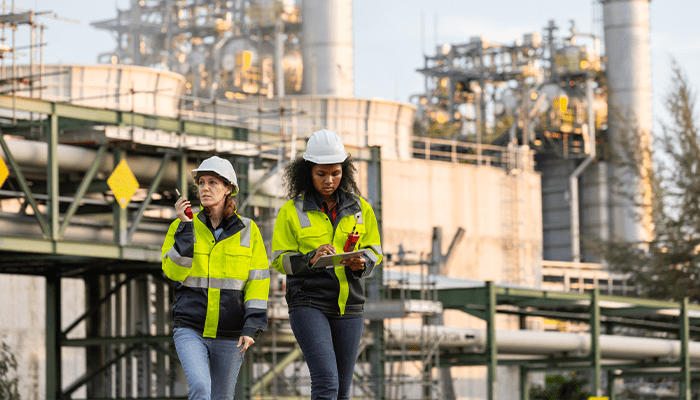
Solving Construction Issues in Commercial Real Estate
Whether you're developing new properties or renovating existing structures, understanding the complexities of construction insurance—particularly builders' risk coverage—is important. This article will break down key insights and provide actionable steps and best practices to ensure you are protected throughout the construction process.
Builders’ Risk Insurance: The Backbone of Construction Projects
Although there are numerous insurance items that may, and often do, come into play on a project, builders’ risk insurance plays a pivotal role in protecting real estate investments during the construction phase. This specialized form of property insurance is designed to cover buildings under construction, including on-site materials, those in transit, and occasionally, liability issues related to the project.
Builders’ risk offers first-party property coverage, making it indispensable for both large-scale developments and smaller renovations. With builders’ risk insurance in place, unforeseen events carrying perils such as fire, theft, or weather damage can be effectively mitigated, ensuring projects remain financially viable and on schedule.
Let's discuss safeguarding your construction projects with comprehensive builders risk insurance coverage.
Why Builders’ Risk Insurance Is Often Misunderstood
Designing the right type of coverage for your project is critical and one of the most common challenges in real estate and construction is the misunderstanding or underestimation of builders’ risk insurance. An area often overlooked is insuring soft costs (expenses incurred due to delays like interest on loans, architect fees, and profit and overhead). Having a thoughtful discussion around real costs, and what makes sense to pay insurance premium for, is an effective strategy and should be a regular exercise on a project-by-project basis.
Navigating a Hardening Builders Risk Market
The current builders’ risk market, particularly for frame construction, has been hardening at a historical rate, particularly in regions prone to high risks like wildfires, hurricanes, or other natural disasters. Despite this, there are still opportunities to secure favorable coverage. Working with a broker with industry expertise and strong market relationships can make all the difference when navigating complex underwriting requirements.
Renovation Projects: A Special Consideration
Renovation projects present their own set of challenges, particularly when it comes to balancing the value of the existing structure with the new construction. Builders’ risk insurance must account for both components, and underwriters often look at factors such as the percentage of the existing structure and the cost of renovations to determine coverage.
Having adequate insurance coverage at the intersection of real estate and construction requires a deep understanding of builders’ risk insurance, careful planning, and expert guidance. To ensure
smoother construction projects and mitigate risk:
- Provide a comprehensive breakdown of all project costs, including soft costs, to present an accurate picture of the project's scope.
- Collaborate with experienced construction insurance specialists from the outset to navigate the intricacies of the risks you are taking on to fully evaluate items, such as builders’ risk and related coverages, ensuring all potential gaps—including pollution, liability, and professional indemnity—are addressed.
- Engage in proactive discussions with lenders regarding insurance requirements, helping to avoid unnecessary costs and delays. By tackling coverage requirements early, you can keep your projects aligned with timelines and budgets.
As the market continues to tighten, especially in high-risk regions, remaining informed and proactive is essential for securing the best coverage. Whether embarking on a ground-up development or a renovation venture, partnering with specialists who possess a thorough understanding of both the real estate and construction sectors can make all the difference.
Gregory Stephens is the National Construction Practice Leader for AssuredPartners. In addition to holding multiple professional designations, he is often sought after as a thought leader in the insurance space. Gregory has been involved in hundreds of projects, ranging from single family homes to large multi-national builds.
AssuredPartners' Construction Practice is a leading broker in the industry, offering tailored risk management and insurance solutions to contractors and construction professionals. With deep expertise in managing complex construction risks, we provide comprehensive coverage and proactive strategies that protect our clients' businesses, ensuring safety, compliance, and growth across a wide range of construction projects.
Have questions? Contact our industry specialists to ensure your investments are protected throughout the construction process.
Featured News & Insights

The construction insurance market is seeing shifts that will impact contractors in the year ahead. Some lines of coverage remain stable, while others are facing increased scrutiny from carriers....

When it comes to construction, safety is always priority number one. You already know that personal protective equipment (PPE) is a must to keep your team safe from hazards on the job. But here’s...

In the construction industry, contracts define relationships, responsibilities, and expectations among contractors, subcontractors, and owners. One of the most important yet often misunderstood...